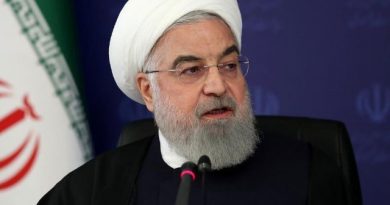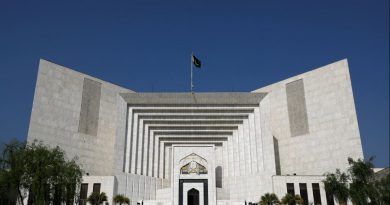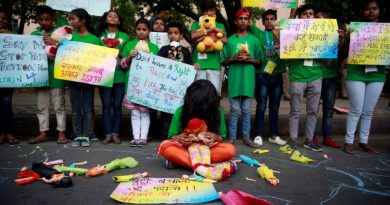Sri Lanka imposes curfew, lawyers urge end to state of emergency
Colombo (Reuters) – Sri Lanka’s government imposed a weekend curfew on Saturday even as hundreds of lawyers urged President Gotabaya Rajapaksa to revoke a state of emergency to ensure that freedom of speech and peaceful assembly are respected under the country’s economic crisis.
“Under the powers given to the president, curfew has been imposed countrywide from 6 p.m. (1230 GMT) on Saturday to 6 a.m. (0030 GMT) on Monday,” the government’s information department said in a statement.
Rajapaksa on Friday invoked stringent laws to tackle growing unrest in the unprecedented crisis. In the past, a state of emergency order allowed the military to arrest and detain suspects without warrants.
The current restrictions were not immediately clear, said a rights’ lawyer.
Bhavani Fonseka, a senior researcher at the nonprofit Colombo Centre for Policy Alternatives rights group said regulations defining the president’s emergency powers have yet to be issued.
Shops opened and traffic was normal, while police remained stationed at some petrol stations.
The Indian Ocean island nation of 22 million people is grappling with rolling blackouts for up to 13 hours a day as the government scrambles to secure foreign exchange to pay for fuel imports. read more .
Rajapaksa said the state of emergency was necessary to protect public order and maintain essential supplies and services.
The order has raised fears that the government could resort to a crackdown to quell protests.
“There has been a failure to understand the aspirations of the people and to empathize with the suffering of the people of the country,” the lawyers, members of the Bar Association of Sri Lanka, said in their appeal.
Reacting to the state of emergency, American Ambassador to Sri Lanka
U.S. Ambassador Julie Chung said, “Sri Lankans have a right to protest peacefully – essential for democratic expression.
“I am watching the situation closely, and hope the coming days bring restraint from all sides, as well as much needed economic stability and relief for those suffering,” she tweeted.
Angered by shortages of fuel and other essential items, hundreds of protesters clashed on Thursday with police and the military outside Rajapaksa’s residence as they called for his ouster and torched several police and army vehicles.
Police arrested 53 people and imposed a curfew in and around Colombo on Friday to contain other sporadic protests.
Highlighting the severe shortage of foreign currency, a vessel carrying 5,500 metric tonnes of cooking gas had to leave Sri Lankan waters after Laugfs Gas (LGGL.CM), the company that ordered it, could not procure $4.9 million from local banks to pay for it.
“People are struggling with an acute shortage of cooking gas, but how can we help them when there are no dollars? We are stuck,” Laugfs Gas Chairman W.H.K. Wegapitiya told Reuters.
The ongoing crisis – the result of economic mismanagement by successive governments – has been compounded by the COVID-19 pandemic, which has hit tourism and remittances.
It has also marked a sharp turnaround in political support for Rajapaksa, who swept to power in 2019 promising stability.
The government has said it is seeking a bailout from the International Monetary Fund and fresh loans from India and China.
In the first major food aid to the country since Colombo secured a credit line from New Delhi, Indian traders have started loading 40,000 tonnes of rice.



